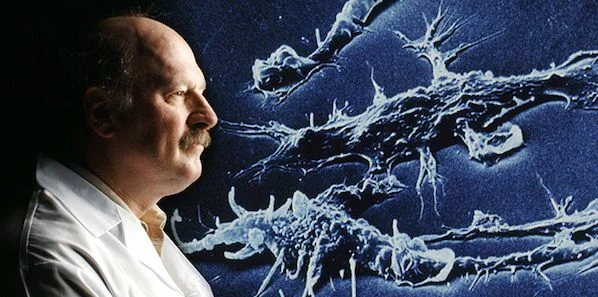With antibiotic resistance a major issue globally, research in Canada may lead to an effective alternative in tackling bacteria.
The research team, led by Professor Bob Hancock, of the University of British Columbia's Department of Microbiology and Immunology, identified a small molecule that prevents bacteria from forming into biofilms, which are highly structured communities of bacteria responsible for two-thirds of all human infections. The anti-biofilm peptide works on a range of bacteria including many that cannot be treated by antibiotics.
Hancock and his colleagues discovered that the peptide known as 1018 -- consisting of just 12 amino acids, the building blocks of protein -- destroyed biofilms and prevented them from forming.
Bacteria are generally separated into Gram-positives and Gram-negatives. The differences in their cell wall structures make them susceptible to different antibiotics. The 1018 peptide worked on both classes of bacteria as well as several major antibiotic-resistant pathogens, including Pseudomonas aeruginosa, MRSA and E. coli.
Professor Hancock stated that this strategy was an advance in the quest for new agents to target bacterial biofilms.
Source: University of British Columbia
Image credit: Martin Dee
References:
César de la Fuente-Núñez, Fany Reffuveille, Evan F. Haney, Suzana K. Straus, Robert E. W. Hancock. Broad-Spectrum Anti-biofilm Peptide That Targets a Cellular Stress Response. PLoS Pathogens, 2014; 10 (5): e1004152 DOI: 10.1371/journal.ppat.1004152
Latest Articles
antibiotic resistance
With antibiotic resistance a major issue globally, research in Canada may lead to an effective alternative in tackling bacteria. The research team, led...










